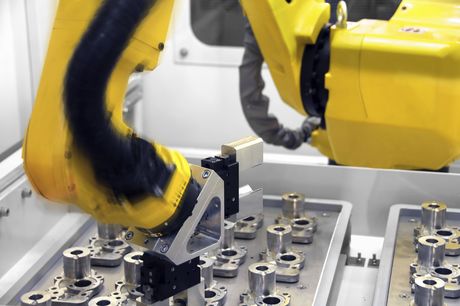Industry 4.0: ignore at your peril
By Scott Moffat, Managing Director
Thursday, 03 November, 2016

Everyone has by now heard and read about Industry 4.0 and the Industrial Internet of Things (IIoT). We have all heard about how this will lead to the digitalisation of manufacturing and the convergence of the cyber and physical worlds on the plant floor — creating the ‘Factory of the Future’ in which machines think for themselves, analyse big data and continuously optimise and evolve so that the process operates as efficiently as possible.
But until now a lot of the concepts and technologies are theoretical and lack a practical application in the real world — especially in Australian manufacturing. Some people think the leap to this technology is too great, or is too far in the future to play a meaningful role in their own plant.
However, on a recent trip to Germany I was very lucky to visit a newly commissioned factory that had incorporated a number of Industry 4.0 concepts and see some of this stuff in action for the first time. This factory produced medical devices that were individually customised to the target patient. Patient data was collected and incorporated into the manufacturing process in near real time so that the devices that were being produced were personalised and tailored to the individual. Each device coming off the line was slightly different in some regard and essentially bespoke.
The concept of ‘Batch Size One’ is a key theme in Industry 4.0 and is achieved by decentralising the manufacturing process and storing the required manufacturing data (or ‘blueprint’ as they called it) with the work piece itself. The work piece then travels around the factory visiting the various automated workstations to be manufactured using the locally stored manufacturing data. At any point in the process you could remove the work piece and read the RFID information and understand exactly at what point in the manufacturing process the part was up to and what was left to complete and with what customisation or options the part contained.
Another observation that struck me was the modularity of the production lines. The line was made up of a number of components or workstations each designed to complete a specific task. Most were automated; however, a few of the workstations required an operator to conduct manual tasks and even one with a collaborative robot in which the worker worked side by side with the cobot to complete the specific task. The units seemed interchangeable and I was told they could be arranged to suit, and if the work piece didn’t require that particular manufacturing process or function then it would just pass straight through. Again, this meant the plant could be reconfigured very quickly to ensure it was optimised to the particular manufacturing process required at the time.
There were other things which may not be specifically Industry 4.0 or IIoT concepts, such as the integration of the production lines into the supply chains of their raw materials and component suppliers. Each vendor was integrated into the production process and was responsible for ensuring their specific raw material or component was supplied, delivered and placed in suitable quantities within the manufacturing process to meet the required production levels. They had automated quality checks before goods reached production and measured defect rates, essentially removing the requirement for an inwards goods function by the company.
All of this combined certainly gave me a feel for what an Industry 4.0 ‘Factory of the Future’ could look like and I was buoyed by the fact that companies were doing this here and now in Germany. I did, however, note that the production rates were significantly below that of what I would expect from a traditional mass production line — but I understand that this is the trade-off for being able to manufacture complex individual bespoke goods that are tailored to your customer’s requirements. To me this is exactly the direction our manufacturing industry needs to take as we will simply struggle to be competitive with the mass production of commodity items in a high-cost country such as ours.
Performance without compromise: enhancing manufacturing quality with single-controller solutions
Most factory automation systems today have mutiple control systems that don't communicate...
From wartime wisdom to smart manufacturing: the power of condition monitoring
The shift from reactive to predictive maintenance is really a cultural transformation empowered...
Efficiency in intralogistics: AMRs and industrial 5G
How industrial 5G enhances AMR applications and performance.











